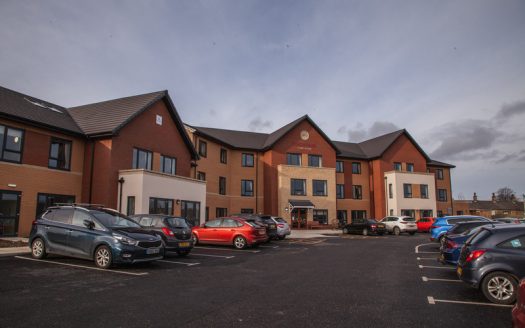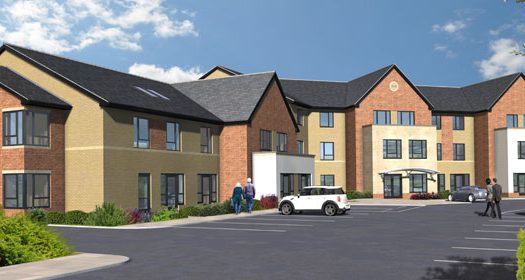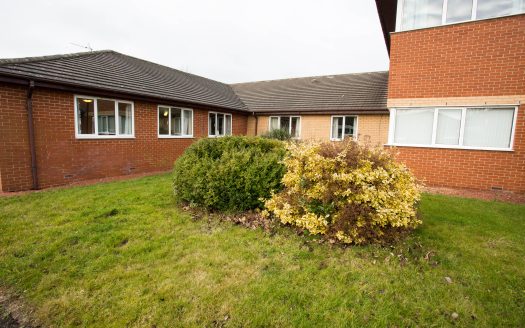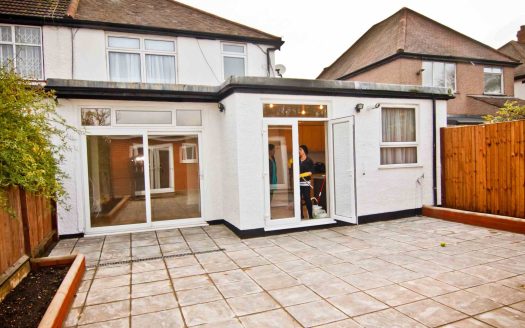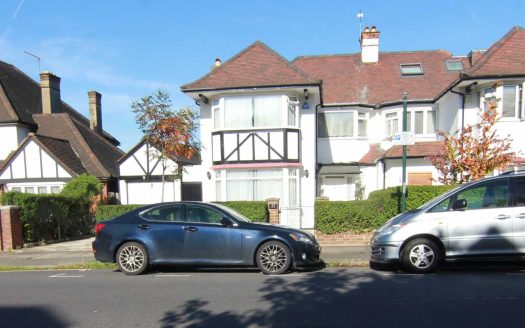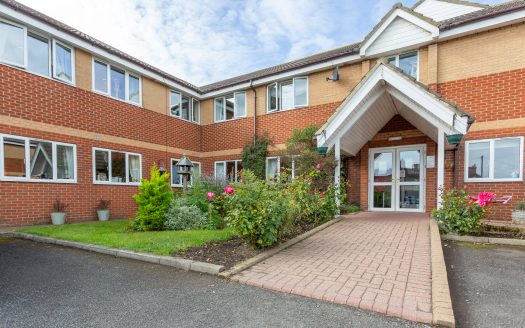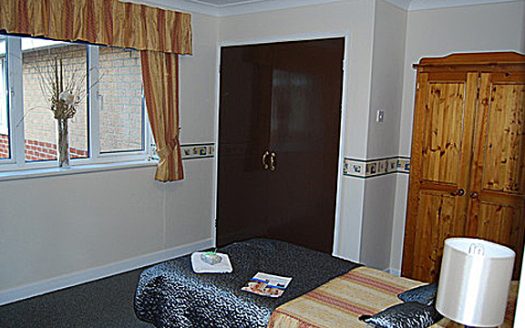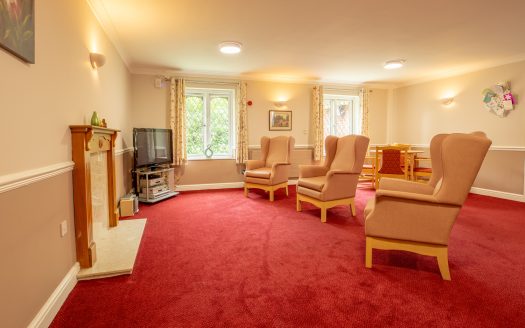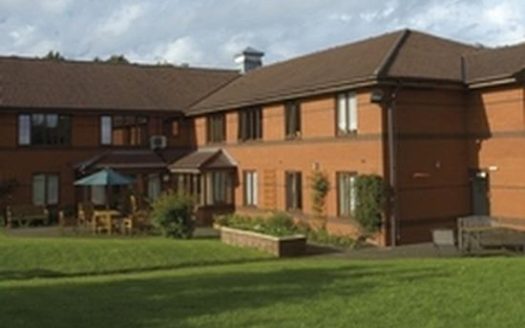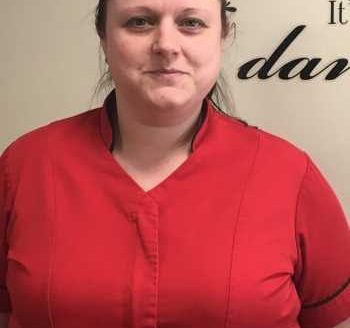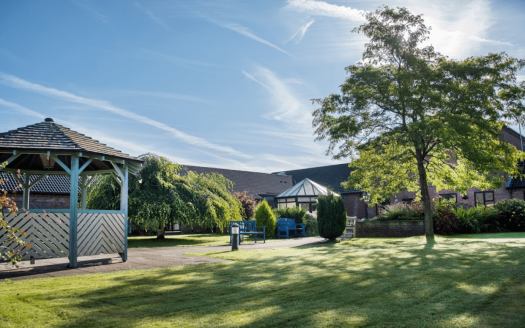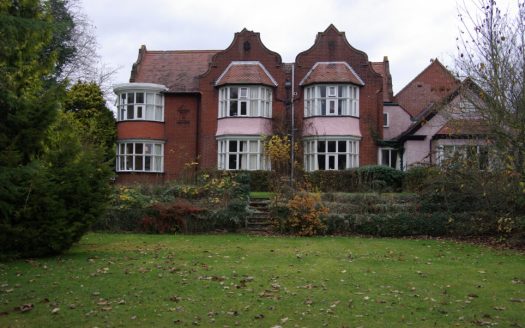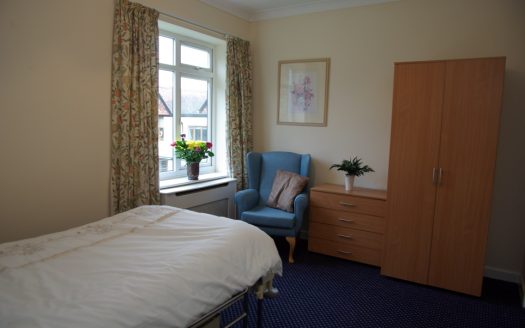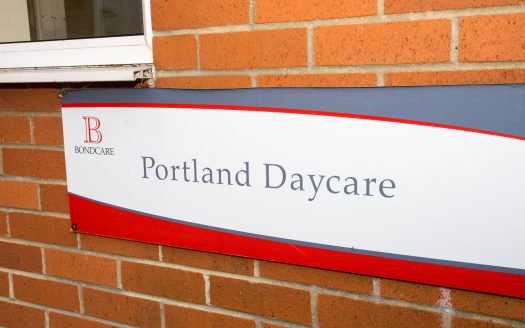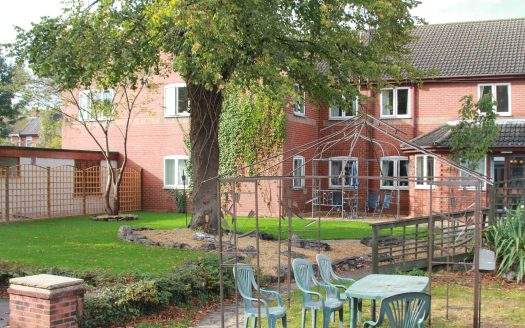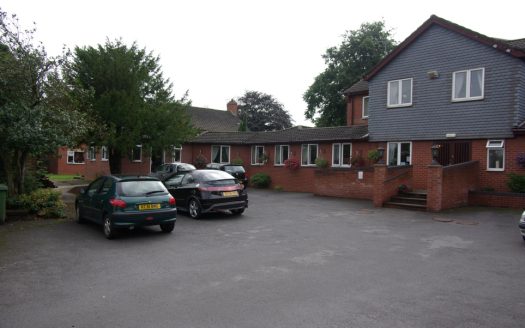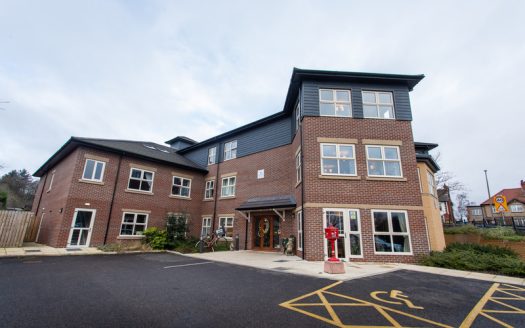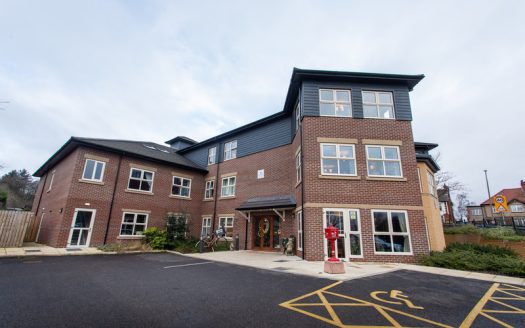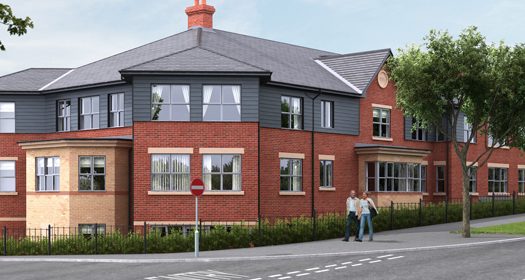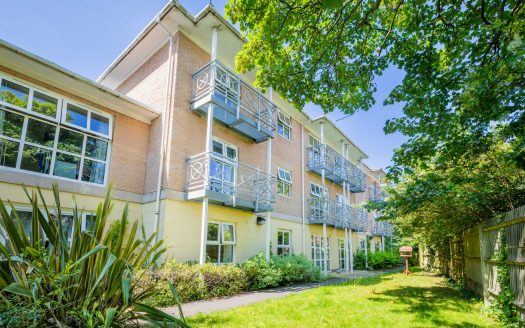Physical Disability Care
Making the move into assisted living can often seem like a daunting process, but at Bondcare Care Homes we make sure it is as comfortable and smooth as possible.
- FAQs
Read some of our frequently asked questions
All residents are entitled to change care homes if their current one isn’t the right fit for them – perhaps they are struggling with the adjustment or the location has hindered their family from visiting as regularly as they’d like. Referring to the terms and conditions of the contract will prevent any problems so that this is a smooth process.
Being surrounded by items from home can allow new residents to feel more comfortable and settled. At Bondcare, we welcome small items of furniture – such as a favourite armchair – and other treasured belongings – including photographs – so residents can personalise their rooms. All electrical items will be PAT tested and furniture will undergo a fire risk assessment to protect the safety of our residents and staff.
Our staff would be happy to show you around the home, but it is always advisable to book ahead to ensure that someone will be available to guide you around and provide you with all of the information you need to know.
Our staff would be happy to show you around the home, but it is always advisable to book ahead to ensure that someone will be available to guide you around and provide you with all of the information you need to know.
Visiting one of our homes is easy, either make an appointment with the home manager or simply drop in to be shown around!
Follow us on Facebook
Bondcare are trusted, experienced operators of care homes around the country, including care homes with physical disability care. For more information about physical disability and physical disability care homes, please read on.
What is Classed as a Physical Disability?
A physical disability is a long-term condition that affects a person’s movement, stability, dexterity or stamina. Physical impairments can range in severity – some people may require a walking stick or frame, for example, but others may be completely unable to walk. A person can be born with a physical disability, or they may develop one later in life due to illness or an accident.
What are the Types of Physical Disabilities?
There are many types of physical disability, some with more debilitating effects than others. Types of physical disability include:
Multiple sclerosis
A person who has multiple sclerosis can suffer from a number of impairments. Also known as MS, it is a condition that affects the brain and the spinal cord, including loss of leg and arm movement, vision problems and balance issues. MS can be mild but it can also be very severe, requiring long-term care and assistance.
Cerebral palsy
Cerebral palsy is a lifelong condition that affects a person’s coordination and movement. People are either born with the condition or develop it soon after, and symptoms can range from mild to very severe. As well as movement issues, cerebral palsy can cause swallowing difficulties and problems with speech and vision.
Epilepsy
Epilepsy is the fourth most common neurological disorder. The most recognisable symptom is seizures, which can be triggered by a number of things: stress, fatigue, alcohol and also flashing lights and images. Epilepsy usually starts in very young people or people over 60, and it can be caused by damage to the brain from things like strokes, a brain tumour, drug or alcohol abuse or a lack of oxygen at birth.
Arthritis
There are over 100 types of arthritis – the term ‘arthritis’ refers to joint pain and stiffness that causes difficulty of movement. Arthritis can be mild or severe, and it can range from some discomfort in a single toe to significant pain and stiffness in multiple joints. People with severe arthritis can have real difficulty moving around and they have to endure chronic pain.
Physical Disability Care Plan
As all physical disabilities are different, a care plan is the most effective way to ensure that residents get the help they need in order to live a happy, comfortable and enjoyable life. Whether a person has been living with a disability for a long time or they have only recently developed one, a care plan can be tailored to different aspects of their lives from things like movement and stability to communication, mental health support and stimulation.
Care plans can also include visits from GPs, physiotherapists, dieticians, speech therapists and other medical professionals to give each resident the specialist care they need.
How to Choose a Care Home for Physical Disability Care
Choosing a care home for physical disability care can be a daunting task. Bondcare operates care homes with physical disability care across the country, staffed by qualified professionals and designed to give each and every one of our residents the support, care, assistance and independence they need to enjoy a fulfilling life. You can find a Bondcare physical disability care home by clicking here.
What can I expect from a Bondcare Care Home?
At Bondcare, we strive to ensure that we provide the best standard of care across each and every one of our care homes. Our staff are qualified to NVQ (National Vocational Qualification) and RQF (Regulated Quality Framework) levels 2 and 3 – you can place your full trust in us, knowing that you or your loved one will be in the safest of hands.
Residents receive all the assistance they need, as well as independence where possible. Carers can help residents with eating, dressing, washing, getting around and social activities – if a resident is able to do some things independently, this is encouraged, but staff are always on hand to help if required. The aforementioned care plans are kept for each resident so that their individual requirements are catered for, and our activity coordinators organise regular social events and trips to local amenities and points of interest. From singalongs to shopping trips, we take great care to ensure our residents remain stimulated.
Residents are allowed to decorate their rooms with accessories and personal touches, and furniture can be brought in subject to prior approval. We want each of our residents to feel at home, and personalising bedrooms is a small yet valuable way of doing this.
How can I get NHS-funded residential care?
You may be eligible for NHS-funded residential care if you meet certain criteria. Residential care can be part or wholly funded by your local council or the NHS, depending on your circumstances – you can read more about NHS-funded residential care by clicking here.
To find your local Bondcare care home, please visit our care homes page and type in your postcode. For more information about the care we provide, please contact us today and we’ll be happy to help.
Find a Care home providing 24/7 Residential Care, Alzheimer's Care, Dementia Care, Residential Care, Respite Care
View our Homes specialising in Physical Disability Care
- Types of Care
- 24/7 Nursing Care
- 24/7 Residential Care
- Acquired Brain Injury Support
- Alzheimer's Care
- Autism Care
- Bipolar Disorder
- Challenging Behaviours
- Complex Epilepsy Support
- Dementia Care
- Disability Care
- Drug And Alcohol Misuse Care
- Elderly Care
- End Of Life Care
- Head/Brain Injury Care
- Huntington's Disease
- Learning Disability Care
- Mental Health Care
- Motor Neurone Disease
- Multiple Sclerosis
- Nursing Care
- Palliative Care
- Parkinson's Disease
- Physical Disability Care
- Post Stroke Care
- Re-Enablement
- Residential Care
- Respite Care
- Sensory Impairment Care
- Specialist Care
- Substance Misuse Support
- Supported Living
- Young Adults Support
- Younger Adults Care
- Categories
- Long-Term Stay
- Palliative Care
- Recovery Care
- Respite Care
- Short Term Stay
- States
- Cities
- Ashton-under-Lyne
- Barnsley
- Benwell
- Bicton Heath
- Billingham
- Birmingham
- Bradford
- Burton-on-Trent
- Carlton
- Castleford
- Cheltenham
- Cheswardyne
- Cleckheaton
- Dagenham
- Dartford
- Dewsbury
- Doncaster
- Drayton
- Eastington
- Elton
- Feltham
- Fordcombe
- Halifax
- Hayes
- Huddersfield
- Husbands Bosworth
- Ilford
- Kilmarnock
- Leeds
- London
- Luton
- Middlesbrough
- Newbiggin-by-the-Sea
- Normanton
- Okehampton
- Oldham
- Oswestry
- Pontefract
- Romford
- Scunthorpe
- Sheffield
- Shildon
- Shiplake
- Skelmersdale
- Southall
- Southampton
- Southwell
- Stapenhill
- Thamesmead
- Thornton Heath
- Thorpe St Andrew
- Wakefield
- Wargrave
- Washington
- Wednesbury
- Willington, Crook
- Wirral
- Wolverhampton
- Worcester
- Areas
- East Midlands
- Gloucestershire
- London
- North East
- North East|Stockton-on-Tees
- North West
- Scotland
- South East
- South West
- Staffordshire
- West Midlands
- West Yorkshire
- West Yorkshire|Yorkshire
- Wirral
- Yorkshire
- Price High to Low
- Price Low to High
- Newest first
- Oldest first
- Newest Edited
- Oldest Edited
- Bedrooms High to Low
- Bedrooms Low to high
- Bathrooms High to Low
- Bathrooms Low to high
- Default
Amelia House Transitions Residential Service
You can contact Rebecca Jackson via phone:
Ashurst Park Care Home
You can contact Jomina Gilles via phone: 01892 709 000
Beechcare Care Home
You can contact Steph Larby via phone: 01322 628000
Birch Park Care Home
You can contact Jacqui Foxton via phone: 0151 644 0777
Brancepeth Court
You can contact Karen Armstrong via phone: 01388 747 698
Dana Care Residential and Supported Living
You can contact Jenny Mein via phone: 020 8209 3839
De Baliol Care Home
You can contact Danielle Carter via phone: 01670 852 017
Green Acres Care Home
You can contact Denise Spencer via phone: 0113 248 3334
Green Lane
You can contact Sadie Suthern via phone:
Herondale/Kingfisher


You can contact via phone:
Kelvedon House
You can contact Nicky McCaffer via phone: 0121 505 7775
Meadowbrook Care Home
You can contact Elle O’Hara via phone: 01691 653000
Portland Hub
You can contact via phone:
Richden Park Care Home
You can contact Gaby Walsh via phone: 01724 280 587
Sycamore Park Care Home
You can contact Mandie Vickers via phone: 0161 626 8522
The Hawthorns Care Home
You can contact Joanna Fisk via phone: 01274 028 590
Frequently Asked Questions:
All residents are entitled to change care homes if their current one isn’t the right fit for them – perhaps they are struggling with the adjustment or the location has hindered their family from visiting as regularly as they’d like. Referring to the terms and conditions of the contract will prevent any problems so that this is a smooth process.
Being surrounded by items from home can allow new residents to feel more comfortable and settled. At Bondcare, we welcome small items of furniture – such as a favourite armchair – and other treasured belongings – including photographs – so residents can personalise their rooms. All electrical items will be PAT tested and furniture will undergo a fire risk assessment to protect the safety of our residents and staff.
Our staff would be happy to show you around the home, but it is always advisable to book ahead to ensure that someone will be available to guide you around and provide you with all of the information you need to know.
Every new resident to the care home will be assessed to ensure they receive the right type of care catered to their individual needs. Following this, a care plan will be created which sets out how the staff at the home will meet those needs for a comfortable stay. Care plans are typically reviewed on a monthly basis and are updated in the event there are any changes.
This will depend on your individual financial situation and care needs. If your finances total below a certain threshold, your local authority can contribute towards your fees – this can differ between countries in the UK, so make sure you familiarise yourself with this first. There are also some benefits options available that care home residents can claim, and the NHS also provides support with nursing care fees, too.
Should residents decide to bring small items of furniture or personal belongings, we are unable to accept responsibility in the event that they are lost or damaged, unless security precautions at the home have been compromised. It is strongly recommended that you arrange suitable contents insurance if you do decide to bring such items along with you.
Recommended by our families
My mum is a resident at this home, the staff are helpful and friendly. Despite her dementia and regular falls, all staff do everything to help with her quality of life. The food is lovely and regular entertainment and activities keep everyone active.
Birch Tree Manor Care Home
Our Associations


Support
Our Company
Get in touch
-
Bondcare House
18 Lodge Road
London NW4 4EF - [email protected]
- 020 8202 2277










